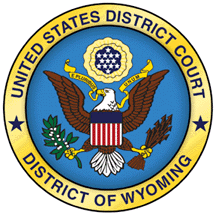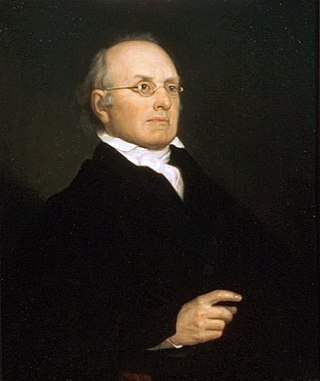
Federal jurisdiction refers to the legal scope of the government's powers in the United States of America.
Personal jurisdiction is a court's jurisdiction over the parties, as determined by the facts in evidence, which bind the parties to a lawsuit, as opposed to subject-matter jurisdiction, which is jurisdiction over the law involved in the suit. Without personal jurisdiction over a party, a court's rulings or decrees cannot be enforced upon that party, except by comity; i.e., to the extent that the sovereign which has jurisdiction over the party allows the court to enforce them upon that party. A court that has personal jurisdiction has both the authority to rule on the law and facts of a suit and the power to enforce its decision upon a party to the suit. In some cases, territorial jurisdiction may also constrain a court's reach, such as preventing hearing of a case concerning events occurring on foreign territory between two citizens of the home jurisdiction. A similar principle is that of standing or locus standi, which is the ability of a party to demonstrate to the court sufficient connection to and harm from the law or action challenged to support that party's participation in the case.

Article Three of the United States Constitution establishes the judicial branch of the U.S. federal government. Under Article Three, the judicial branch consists of the Supreme Court of the United States, as well as lower courts created by Congress. Article Three empowers the courts to handle cases or controversies arising under federal law, as well as other enumerated areas. Article Three also defines treason.

The Sixth Amendment to the United States Constitution sets forth rights related to criminal prosecutions. It was ratified in 1791 as part of the United States Bill of Rights. The Supreme Court has applied all but one of this amendment's protections to the states through the Due Process Clause of the Fourteenth Amendment.
The Domestic Violence Offender Gun Ban, often called the "Lautenberg Amendment", is an amendment to the Omnibus Consolidated Appropriations Act of 1997, enacted by the 104th United States Congress in 1996, which bans access to firearms for life by people convicted of crimes of domestic violence. The act is often referred to as "the Lautenberg Amendment" after its sponsor, Senator Frank Lautenberg (D-NJ). Lautenberg proposed the amendment after a decision from the United States Court of Appeals for the Ninth Circuit, involving underenforcement of domestic violence laws brought under the Equal Protection Clause of the Fourteenth Amendment to the United States Constitution. President Bill Clinton signed the law as part of the Omnibus Appropriations Act of 1997.
In law, attendant circumstances are the facts surrounding an event.

The United States District Court for the District of Wyoming is the federal district court whose jurisdiction comprises the state of Wyoming and those portions of Yellowstone National Park situated in Montana and Idaho; it is the only federal court district that includes portions of more than one state, creating a possible "Zone of Death" where it would be difficult to prosecute crimes. The court has locations in Cheyenne and Casper.
Criminal jurisdiction is a term used in constitutional law and public law to describe the power of courts to hear a case brought by a state accusing a defendant of the commission of a crime. It is relevant in three distinct situations:
- to regulate the relationship between states, or between one state and another;
- where the nation is a federation, to regulate the relationship between the federal courts and the domestic courts of those states comprising the federation; and
- where a state only has, to a greater or lesser extent, a single and unified system of law, it is the law of criminal procedure to regulate what cases each classification of court within the judicial system shall adjudicate upon. People must be tried in the same state the crime is committed.
United States criminal procedure derives from several sources of law: the baseline protections of the United States Constitution; federal and state statutes; federal and state rules of criminal procedure ; and state and federal case law. Criminal procedures are distinct from civil procedures in the US.
Barrett v. United States, 169 U.S. 218 (1898), was a case in which the Supreme Court of the United States held that South Carolina had never effectively been subdivided into separate judicial districts. Therefore, it was held, a criminal defendant allegedly tried in one district for a crime committed in the other had in fact been permissibly been tried in a separate division of a single district.

United States federal probation and supervised release are imposed at sentencing. The difference between probation and supervised release is that the former is imposed as a substitute for imprisonment, or in addition to home detention, while the latter is imposed in addition to imprisonment. Probation and supervised release are both administered by the U.S. Probation and Pretrial Services System. Federal probation has existed since 1909, while supervised release has only existed since 1987, when it replaced federal parole as a means for imposing supervision following release from prison.

The United States Constitution contains several provisions regarding the law of criminal procedure.
The Vicinage Clause is a provision in the Sixth Amendment to the United States Constitution regulating the vicinity from which a jury pool may be selected. The clause says that the accused shall be entitled to an "impartial jury of the State and district wherein the crime shall have been committed, which district shall have been previously ascertained by law". The Vicinage Clause limits the vicinity of criminal jury selection to both the state and the federal judicial district where the crime has been committed. This is distinct from the venue provision of Article Three of the United States Constitution, which regulates the location of the actual trial.

The Marshall Court (1801–1835) heard forty-one criminal law cases, slightly more than one per year. Among such cases are United States v. Simms (1803), United States v. More (1805), Ex parte Bollman (1807), United States v. Hudson (1812), Cohens v. Virginia (1821), United States v. Perez (1824), Worcester v. Georgia (1832), and United States v. Wilson (1833).

The Taney Court heard thirty criminal law cases, approximately one per year. Notable cases include Prigg v. Pennsylvania (1842), United States v. Rogers (1846), Ableman v. Booth (1858), Ex parte Vallandigham (1861), and United States v. Jackalow (1862).

The Crimes Act of 1790, formally titled An Act for the Punishment of Certain Crimes Against the United States, defined some of the first federal crimes in the United States and expanded on the criminal procedure provisions of the Judiciary Act of 1789. The Crimes Act was a "comprehensive statute defining an impressive variety of federal crimes".

The Crimes Act of 1825, formally titled An Act more effectually to provide for the punishment of certain crimes against the United States, and for other purposes, was the first piece of omnibus federal criminal legislation since the Crimes Act of 1790. In general, the 1825 act provided more punishment than the 1790 act. The maximum authorized sentence of imprisonment was increased from 7 to 10 years; the maximum fine from $5,000 to $10,000. But, the punishments of stripes and pillory were not provided for.
United States v. Jackalow, 66 U.S. 484 (1862), is a U.S. Supreme Court case interpreting the Venue and Vicinage clauses of the United States Constitution. It was an "unusual criminal case" and one of the few constitutional criminal cases from the Taney Court. Jackalow, a mariner from the Ryukyu Kingdom, was suspected of the robbery and murder of the captain of the sloop Spray, Jonathan Leete, and Jonathan's brother Elijah, while the ship was at sea. He was convicted of robbery in the Long Island Sound, but as there was disagreement over the question of jurisdiction between the two judges who heard the post-trial motion, the case was referred to the Supreme Court by certificate of division.
TC Heartland LLC v. Kraft Foods Group Brands LLC, 581 U.S. ___ (2017), was a United States Supreme Court case concerning the venue in patent infringement lawsuits.
Smith v. United States, 599 U.S. ___ (2023), is a United States Supreme Court case pertaining to Article III and the Sixth Amendment. The Court held that a defendant may be retried following a jury trial conducted in the improper venue before a jury drawn from the incorrect district.








